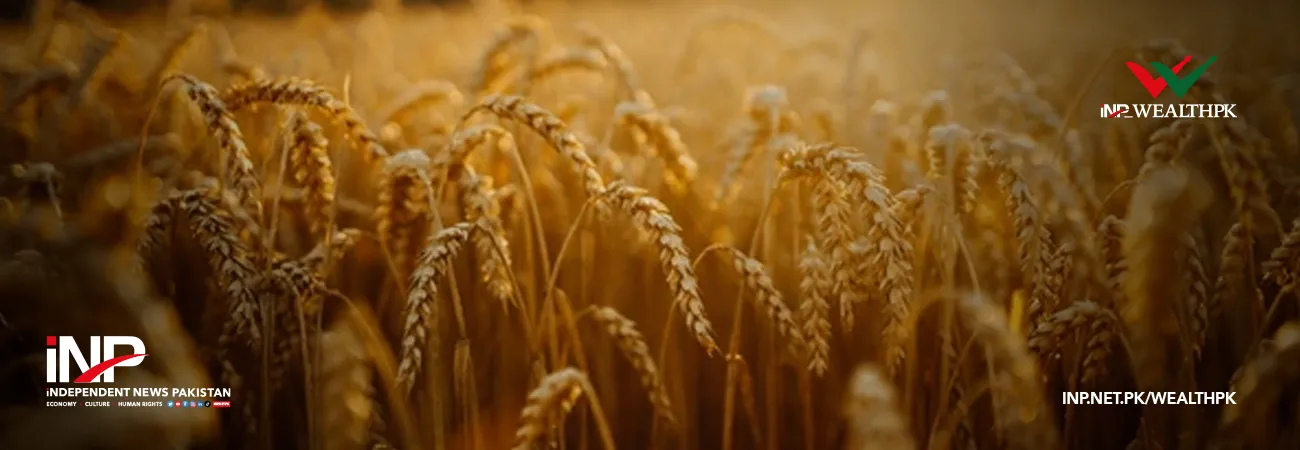INP-WealthPk
By Muhammad Asad Tahir Bhawana ISLAMABAD, May 18 (INP-WealthPK): In the current season, wheat production in Pakistan is expected to be 26.173 million tonnes against the target of 28.89 million tonnes, whereas estimated wheat consumption is around 30.79 million tonnes. A challenging situation is emerging for the country which is facing expected 3 million tonnes shortage of wheat and high flour prices. Data from the Pakistan Bureau of Statistics (PBS) shows that from July-March 2021-22, Pakistan imported wheat worth $795.284 million compared to $983.326 million import during the corresponding period the previous year, a decline of about 19%, which is a positive indicator. An official from Pakistan Agricultural Storage and Services Corporation Ltd (PASSCO) told WealthPK that the current situation may lead Pakistan towards huge amounts of wheat import. “In a recent meeting, the Economic Coordination Committee (ECC) of the cabinet approved 4.5MMT (million metric tonnes) wheat import keeping in view the input from PASSCO and provincial governments to build up strategic reserves and to stabilize wheat prices in the country,” the official said. He added that one of the major reasons behind the shortfall in wheat production is shortage and high prices of fertilizers. Most of the times, small farmers are affected largely owing to this situation. They cannot afford high prices, which leads to lower output. The official pointed out the shortage of water as another main reason affecting food security in the country. “Due to adverse climate effects, Pakistan is included among the most affected nations. It is projected that Pakistan will become the third most water-stressed country by 2030 if it does not take steps to counter the issue,” he stated. So, it is important to take some timely steps to make the country self-sufficient in wheat production. In order to become wheat surplus, timely provision of fertilizers at affordable prices to small farmers must be ensured. This move will lead to an increase in wheat production at all levels. Secondly, the water management system must be improved not just for wheat, but also for the drinking water security. The water pricing system must be well organized to minimize wastage. China is among the top producers of wheat. Pakistan must take advantage of its good relations and collaborate with China to learn modern techniques to get higher yields.












